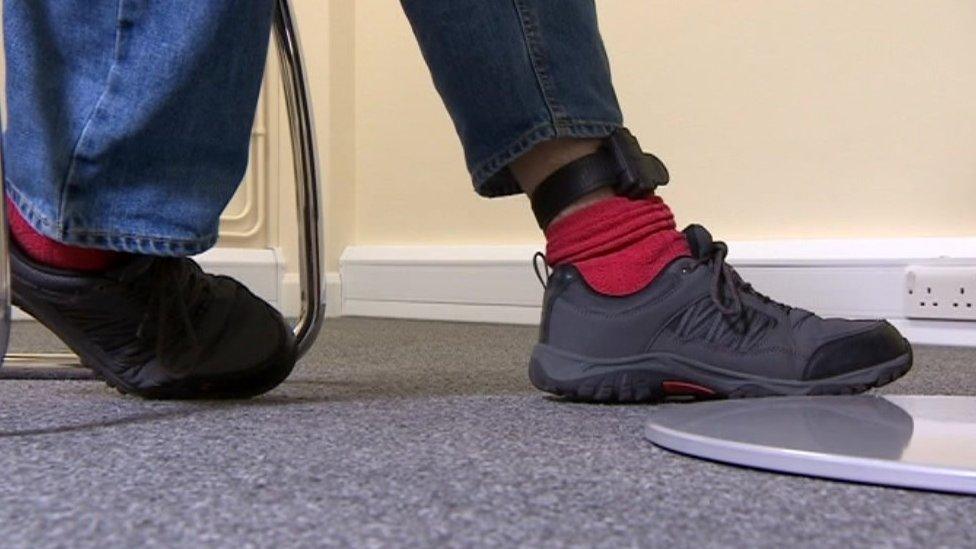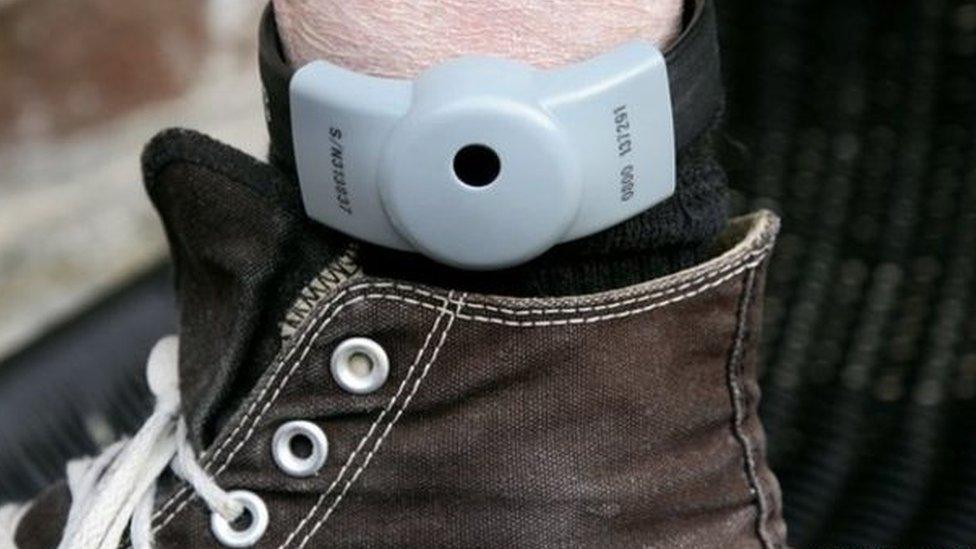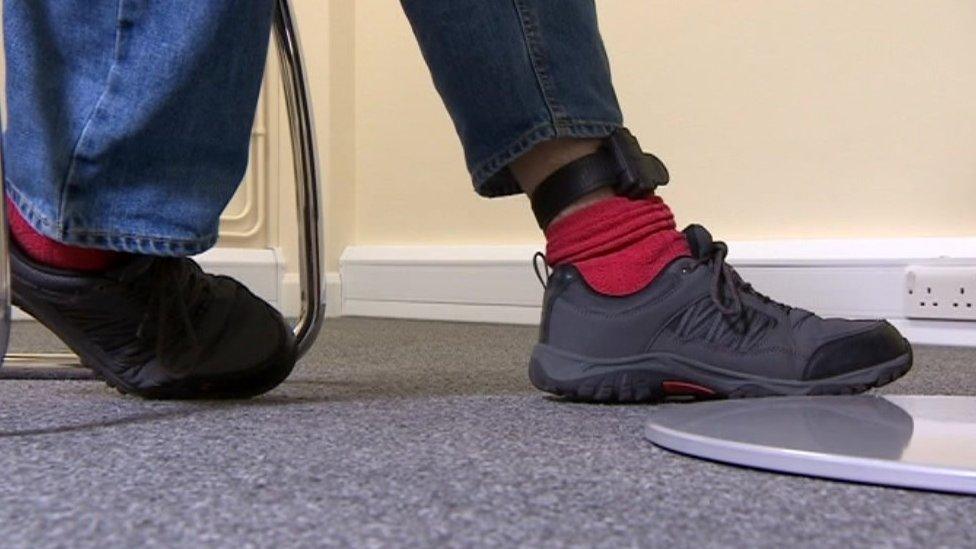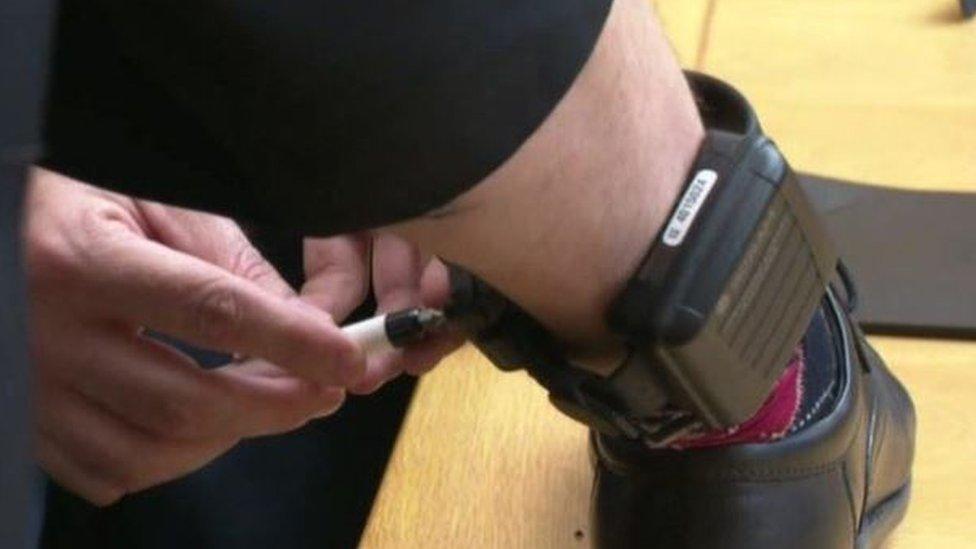'Sobriety tags' aim to cut alcohol-fuelled crime
- Published

The tags monitor offenders' sweat every 30 minutes and alert the probation service if alcohol is consumed
Offenders convicted of alcohol-related crimes can now be banned from drinking and ordered to wear a sobriety tag.
The ankle tags will monitor offenders' sweat every 30 minutes and alert probation staff if alcohol is consumed.
Those found in breach of their drinking bans can face fines or sentenced in court.
The scheme, which launches in Wales on Wednesday, follows trials in London, Humberside, Lincolnshire and North Yorkshire.
The tags can be given out when courts impose an alcohol abstinence order, a new power which serves a drinking ban on an offender for up to 120 days.
Probation staff are alerted when the tags are tampered with and the devices can distinguish between drinks and other types of alcohol such as hand sanitiser or perfume.
They work 24/7 and can also tell if someone tries to block contact between the tag and their skin.
An estimated 39% of violent crime involves offenders who are under the influence of alcohol, and the social and economic cost of alcohol-related harm is said to be more than £21 billion a year, according to the Ministry of Justice (MoJ).
Treatment referrals for alcohol abuse will continue to be made for those with more serious alcohol addictions who commit crimes, the MoJ said.
'Devastating impact'
Crime and policing minister Kit Malthouse said the sobriety tags "can break the self-destructive cycle" offenders can experience and help them sober up if they so choose.
The scheme follows two successful pilots which showed offenders were alcohol free on more than 97% of the days monitored.
The tag wearers also reported a positive impact on their lives, wellbeing and behaviour.
Welsh Secretary Simon Hart said: "Alcohol can have a devastating impact on lives and figures show it is a key factor behind far too many crimes.
"I am encouraged to see Wales at the forefront of implementing this new technology."
- Published19 May 2020

- Published17 January 2020

- Published12 June 2017

- Published31 July 2014
